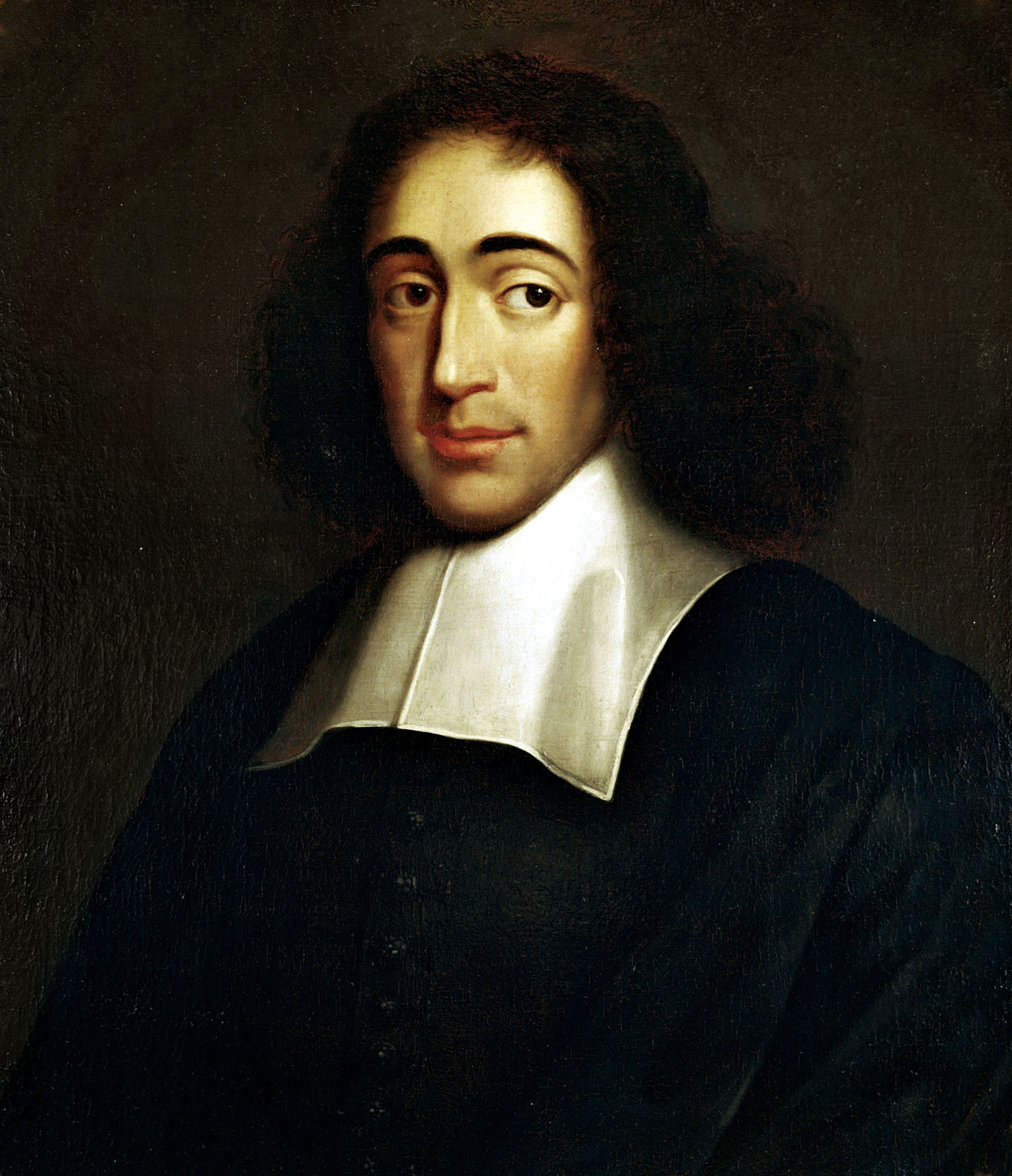Baruch Spinoza nejznámější citáty
Baruch Spinoza: Citáty o moudrosti
Baruch Spinoza citáty a výroky
„Každá situace má smysl, jen ho najít.“
Zdroj: [Berková, Alexandra, Knížka s červeným obalem, Práce, Praha, 1988, 53, druhé, 24–069–88]
„Každý má tolik práva, kolik má moci.“
TANTUM IURIS HABET UNUSQUISQUE, QUANTUM POTENTIA VALET
„Nikdo až dosud nezjistil, co tělo může.“
Zdroj: [Vergely, Bertrand, Velké filosofické otázky, Levné knihy KMa, Praha, 2009, 978-80-7309-636-6, 14, Spinozova Etika]
Baruch Spinoza: Citáty anglicky
Antonio Labriola, Socialism and Philosophy (1897) [original in Italian]
G - L
Antonio Labriola, Socialism and Philosophy (1897) [original in Italian]
G - L
Thomas Henry Huxley, in Life and Letters of Thomas Henry Huxley (London: Macmillan & Co., 1913)
G - L
Thomas Henry Huxley, in his letter, 3 November 1892. Originally published in Life and Letters of Thomas Henry Huxley (London: Macmillan & Co., 1913)
G - L
Johann Gottfried Herder, God, Some Conversations (1787) [original in German]
G - L
Zbigniew Herbert, Spinoza's Bed [original in Polish]
G - L
Heinrich Heine, On the History of Philosophy and Religion and Other Writings [original in German]
G - L
Ernst Haeckel, The History of Creation: Or the Development of the Earth and its Inhabitants by the Action of Natural Causes [2 vols.]. Translated from the German by E. Ray Lankester. (New York: D. Appleton, 1876)
G - L
Guo Moruo, 1983. As quoted in Yuan Li (2016), Study of Comparative Poetic Thought of Guo Moruo's Goddess [original in Chinese]
G - L
Rebecca Goldstein, Betraying Spinoza: The Renegade Jew Who Gave Us Modernity (New York: Schocken, 2006)
G - L
Daniel Barenboim, " The Purpose of the State is Freedom https://danielbarenboim.com/the-purpose-of-the-state-is-freedom/" (DanielBarenboim.com, December 2003)
A - F, Daniel Barenboim
Daniel Barenboim, " Germans, Jews, and Music https://www.nybooks.com/articles/2001/03/29/germans-jews-and-music/" (The New York Review of Books, 29 March 2001)
A - F, Daniel Barenboim
Friedrich Schlegel, Philosophical Fragments (1798)
S - Z
Louis Althusser, Essays in Self-Criticism (1976), "Is it Simple to be a Marxist in Philosophy?"
A - F, Louis Althusser
These deep-rooted affinities are normally passed over in pious silence; they nevertheless constitute, from Epicurus to Spinoza and Hegel, the premises of Marx's materialism. They are hardly ever mentioned, for the simple reason that Marx himself did not mention them, and so the whole of the Marx-Hegel relationship is made to hang on the dialectic, because this Marx did talk about!
Louis Althusser, Essays in Self-Criticism (1976), "Is it Simple to be a Marxist in Philosophy?"
A - F, Louis Althusser
Rebecca Goldstein, in her article 'Literary Spinoza,'. In: The Oxford Handbook of Spinoza, edited by Michael Della Rocca (Oxford: Oxford University Press, 2017)
G - L
Louis Althusser and Étienne Balibar, Reading Capital (1968), Part One: From Capital to Marx’s Philosophy
A - F, Louis Althusser
Louis Althusser and Étienne Balibar, Reading Capital (1968), Part One: From Capital to Marx’s Philosophy
A - F, Louis Althusser
Sigmund Freud, in a letter to Siegfried Hessing. As quoted in António Damásio's Looking for Spinoza: Joy, Sorrow, and the Feeling Brain (Orlando, FL: Harcourt, 2003)
A - F
Sigmund Freud, in a letter to Lothar Bickel in 1931. As quoted in Siegfried Hessing, ‘Freud et Spinoza’, in Revue Philosophique de la France et de l'Etranger, Vol. 167 No 2, 1977, p. 168; and also as quoted in António Damásio's Looking for Spinoza: Joy, Sorrow, and the Feeling Brain (Orlando, FL: Harcourt, 2003)
A - F
Albert Einstein (1932), in Max Jammer's Einstein and Religion: Physics and Theology (Princeton University Press)
A - F
Albert Einstein, Princeton, 26 April 1947
A - F
Original in German: Einen solchen Standpunkt fand Goethe früh in Spinoza, und er erkennet mit Freuden, wie sehr die Ansichten dieses großen Denkers den Bedürfnissen seiner Jugend gemäß gewesen. Er fand in ihm sich selber, und so konnte er sich auch an ihm auf das schönste befestigen.
Johann Peter Eckermann, Gespräche mit Goethe in den letzten Jahren seines Lebens, 1831
A - F
Martin Buber, in his Heruth: On Youth and Religion (1919)
A - F
Isaiah Berlin and Ramin Jahanbegloo, Conversations with Isaiah Berlin. (New York: Charles Scribner's Sons, 1991)
A - F
Steven Nadler, in article Baruch Spinoza, Stanford Encyclopedia of Philosophy (First published Jun 29, 2001; substantive revision Jul 4, 2016)
M - R, Steven Nadler
“I always carry the Ethics of Spinoza with me.”
Original in German: Ich führe, die Ethik von Spinoza immer bei mir; er hat die Mathematik in die Ethik gebracht, so ich in die Farbenlehre, das heißt: da steht nichts im Hintersatz, was nicht im Vordersatz schon begründet ist.
Johann Wolfgang von Goethe, in a conversation with Boisserée, 3 August 1815. As quoted in Julie D. Prandi's “Dare To Be Happy!”: A Study of Goethe's Ethics (Lanham, MD: University Press of America, 1993)
G - L, Johann Wolfgang von Goethe
Ernest Renan, at the dedication of a statue to Spinoza in 1882, as quoted in The Story of Philosophy (1962) http://caute.net.ru/spinoza/aln/durant.htm by Will Durant
M - R, Friedrich Nietzsche
Friedrich Nietzsche, in his poem To Spinoza. Translated from the German by Yirmiyahu Yovel, in his book Spinoza and Other Heretics, Vol. 2: The Adventures of Immanence (Princeton, NJ: Princeton University Press, 1989), p. 132. Original published in Nietzsche, Werke (Leipzig: Kröner, 1919)
M - R, Friedrich Nietzsche
Friedrich Nietzsche, in his letter to Franz Overbeck, 2 July 1885 [original in German]
M - R, Friedrich Nietzsche
